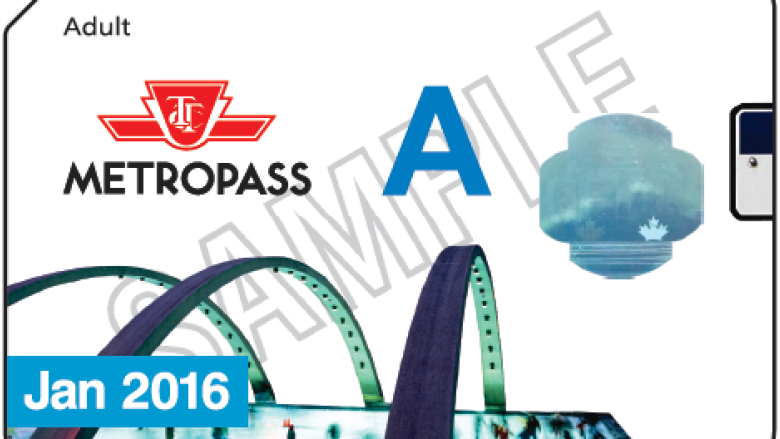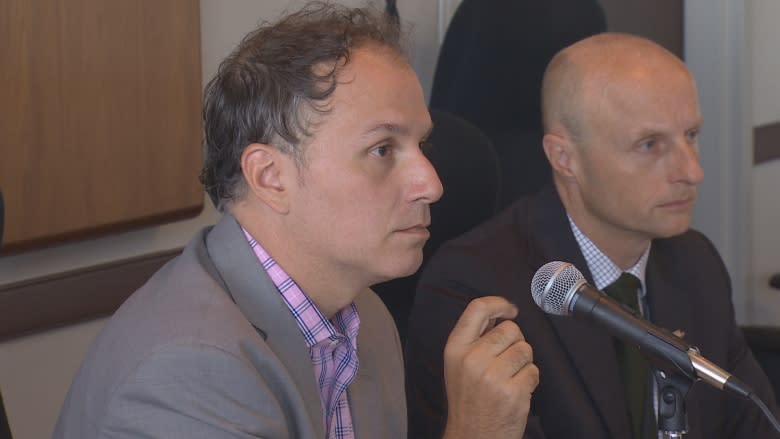TTC suspects adult riders using student Metropasses to scam system
Senior officials at the Toronto Transit Commission suspect that an increase in the sale of student Metropasses, plus a corresponding drop in the sale of adult passes, may add up to fraud.
At Thursday's TTC board meeting, general secretary Vince Rodo reported that sales of the regular full-price adult monthly pass are down by about five per cent, but that's been more than offset by growth in post-secondary pass sales.
"Over the last several years, post-secondary sales have increased significantly and there's been no corresponding increase in enrollment," said Rodo.
TTC Board Chair Josh Colle said the numbers suggest something is amiss.
"So you have the same amount of students out there yet somehow, conveniently, adult Metropass sales are down and student sales are up," he said. "Does that not speak to a bigger problem that's potentially happening here amongst our paying public?"
With an adult monthly pass topping out at $141.50 and the post-secondary student Metropass costing $112.00, TTC staff think the difference may be an incentive for some to simply get a student to buy their passes for them. The potential savings is more than $350 a year.
TTC Chief Executive Officer Andy Byford said this kind of fare fraud has not gone unnoticed.
"We're on to that. There does seem to be a disconnect between the numbers of people enrolling and the numbers of people getting student Metropasses," he said. "It's something we are aware of and something we are taking action on."
While post-secondary students require TTC photo ID to prove eligibility to buy a pass, there's little stopping a student from turning around and giving or selling it to someone else.
There's no check for student ID for riders who swipe their cards to enter a station. Byford said the only way they would get caught is if a TTC's fare inspector asked to see their pass in a random check.
Riders must surrender their passes for inspection upon request when on TTC vehicles or premises.
"If they say they are a student then they would have to show their student ID," said Byford. "That's probably where they would get caught out right now. We have a pretty much zero tolerance policy for fare evasion."
TTC customer Safiyah Sattaur said she understands why people would purchase the cheaper passes.
"To be honest with you, if I knew a student who could buy me a student Metropass and I could get away with it I would probably partake in it myself. Like everyone is trying to save a buck these days and I don't blame them."
Coun. Shelley Carroll (Ward 33, Don Valley East), who sits on the Toronto Transit Commission, said the fare avoidance scam has to be dealt with before the TTC phases out tokens, tickets and cash fares and moves entirely to the Presto electronic fare system.
"How do we know if the right person is paying the right fare?" said Carroll. "We're moving to Presto where there could be rampant misuse of the system and if that happens the system pretty much collapses."
The TTC depends on fares for the vast majority of its revenue. According to budget documents, fares from 545 million rides amounted to $1.14 billion, while the city and province contributed $474 million in subsidies.
Under the Provincial Offences Act fare cheats can face penalties of between $235 and $425 on conviction for such offences as refusing to pay a fare, altering fare media and travelling with altered identification.
"We have to get a certain amount of revenue. Property taxes are subsidizing a dollar of every ride you take. You've got to pay your fair share," Carroll.said.




